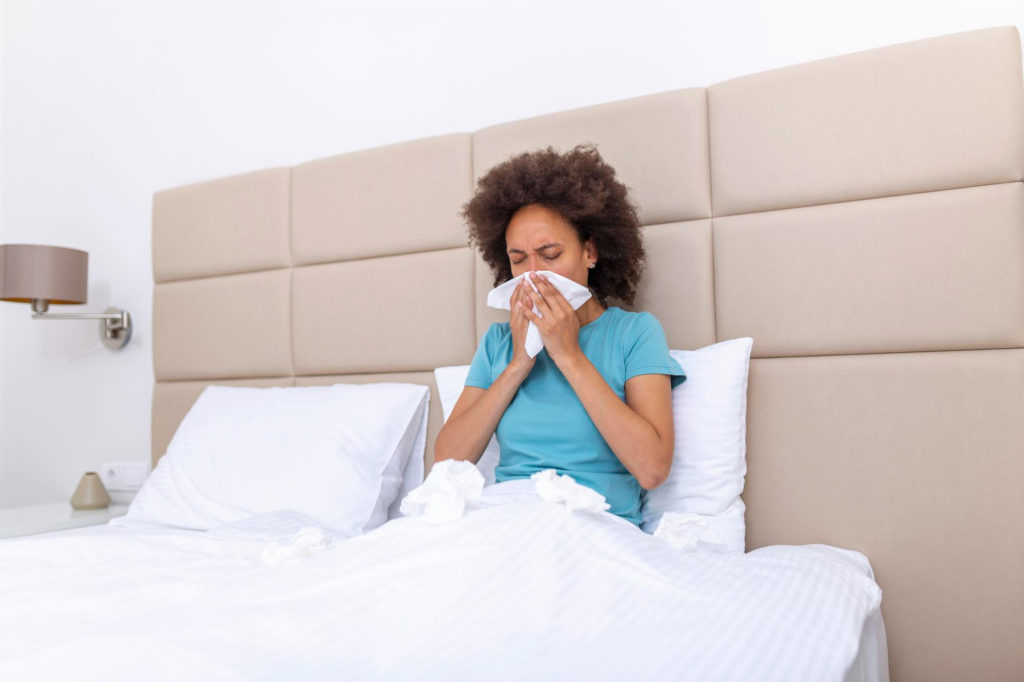
The illness is caused by changes in temperature, humidity, and exposure, not by the weather itself.”
A significant change in weather can be interpreted as stress by our bodies, and when our bodies are stressed, our immune systems are weakened. This means that our ability to fight infections has been harmed. At the same time, a significant change in temperature and humidity can create an ideal environment for infections to begin and then spread.
In other words, a significant change in weather cannot cause you to become ill; you must be exposed to the viruses that cause the common cold or flu virus. It can, however, influence factors in your body and your surroundings that cause you to be depressed.
Seasonal change of weather: heat and pollen
Seasonal allergies can also make many people feel ill, as the weather warms, flowers, trees, and grasses begin to produce pollens that aggravate nasal drip, stuffiness, and asthma, and leaf mold sensitivity can push these symptoms
cold air and viruses
There is some evidence that we are more susceptible to illness in colder temperatures When the temperatures drop, common viruses such as human rhinovirus (which causes up to 40% of all colds) and influenza virus (which causes flu) spread more quickly.
Cold temperatures can also cause seasonal asthma and hyperreactive airways. People who have these triggers should use an inhaler and a face mask, especially when exercising in cold weather, to reduce the effects of cold air on the lungs.
Even patients who do not have lung problems experience runny noses, blocked noses, and sneezing as the temperature changes outside. Which makes symptoms worse if you do catch a cold
Weather change sickness symptoms
Any weather change sickness symptoms you experience will be determined by which of the weather change factors listed above has affected you. Rather than experiencing specific weather change sickness symptoms, many people become ill more generally when their immune systems are stressed.
Any specific symptoms you experience as a result of these factors are most likely caused by common viral infections such as the common cold or hay fever.
Both conditions have many symptoms in common.
· A stuffy nose.
· A scratchy throat.
· The eyes are itchy.
· Wet eye set.
· Sneezing.
· Headaches.
Protecting yourself from weather change sickness
Keep physically active
Regular exercise can strengthen your immune system, which helps your body to fight viral infections like cold, flu, and COVID-19.
Get plenty of sleep
Establishing a habit of getting enough undisturbed sleep each night can give your immune system a significant boost.
Manage your stress levels
Feeling stressed can have a big impact on your immune system’s response to infections.
Drink plenty of water
Staying well-hydrated plays a key role in keeping you healthy and your essential functions working properly.
Eat a well-balanced diet
This means consuming a wide range of nutrients and vitamins. For example, foods rich in vitamin C, vitamin B12, and zinc are known for their immunity-boosting qualities.

Recent Comments